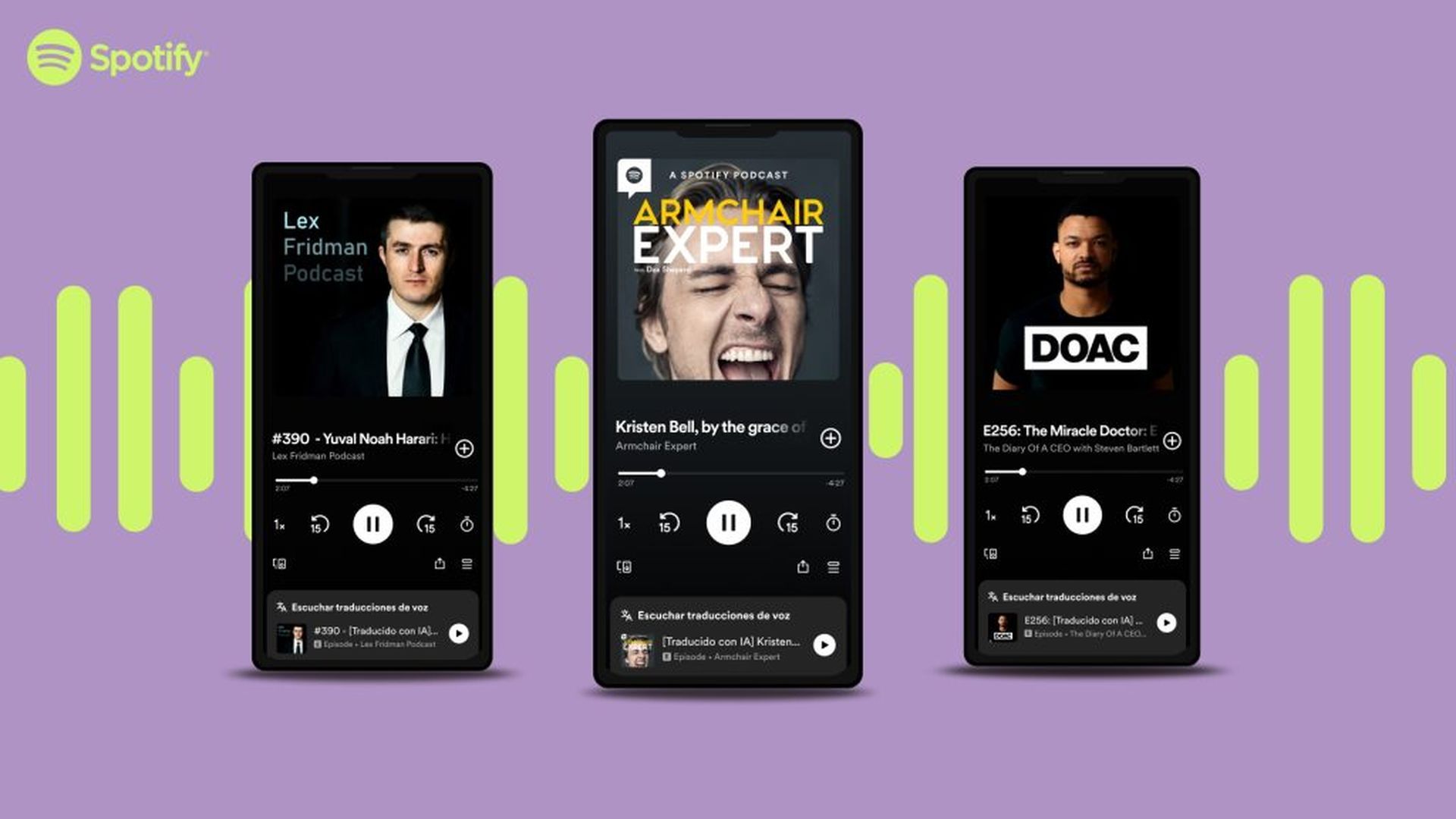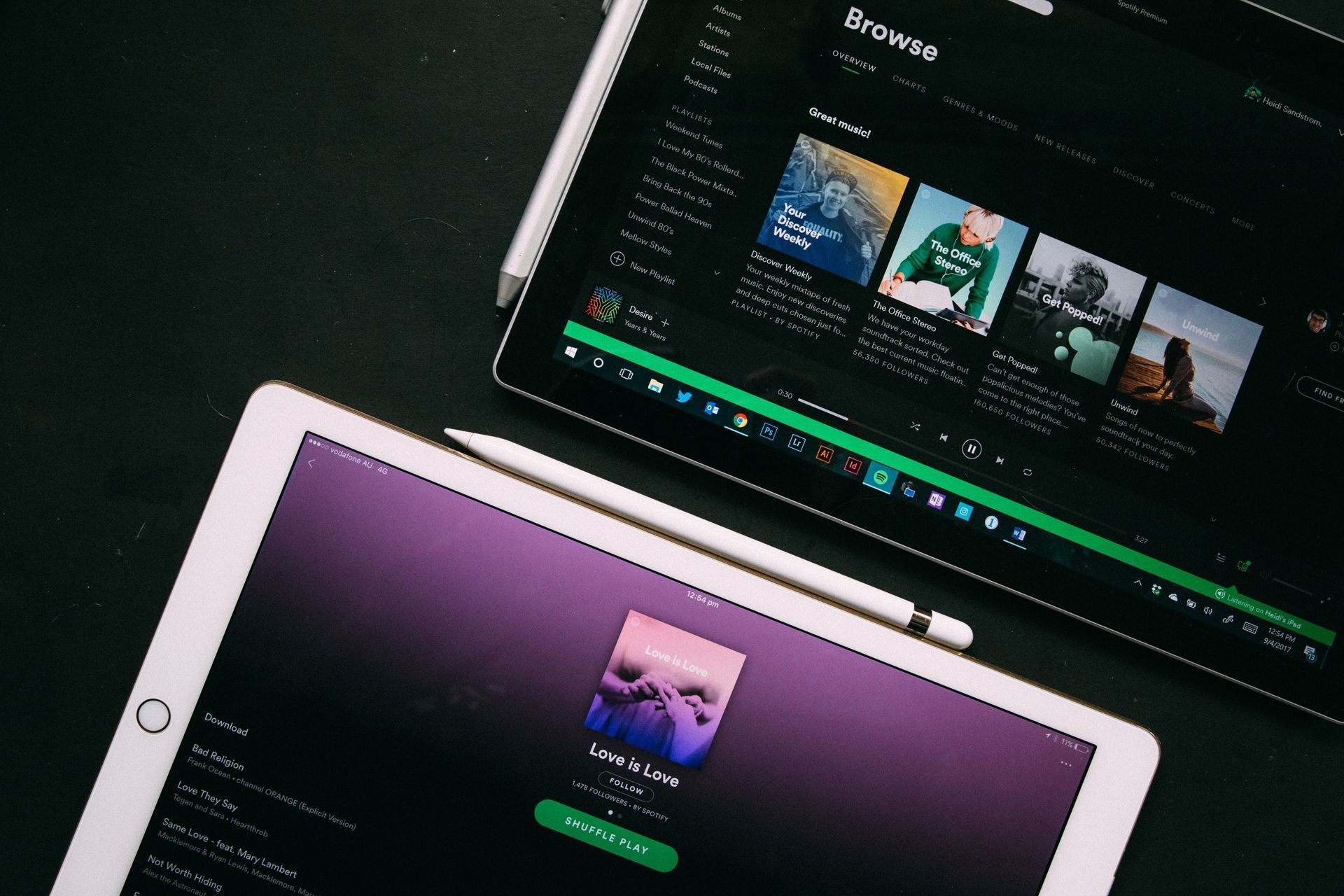Spotify has introduced an innovative feature harnessing the power of artificial intelligence (AI). This new feature can translate podcasts into multiple languages while retaining the original voices of the speakers. This remarkable development is partially attributed to OpenAI’s latest voice generation technology, capable of replicating a voice with just a few seconds of audio input.
Spotify touts this feature as a game-changer for podcast enthusiasts, offering “a more authentic listening experience that sounds more personal and natural than traditional dubbing.” With this innovation, podcast episodes originally recorded in English can now be enjoyed in various languages, all while preserving the distinctive speech characteristics of the original speakers.
Embracing multilingual podcasting
Starting today, Spotify is rolling out voice-translated episodes from select creators, initially focusing on translating from English to Spanish. In the coming days, French and German episodes will also be added to this impressive repertoire.
Some of the episodes currently available in Spanish include:
- Lex Fridman Podcast – “Interview with Yuval Noah Harari”
- Armchair Expert – “Kristen Bell, by the grace of god, returns”
- The Diary of a CEO with Steven Bartlett – “Interview with Dr. Mindy Pelz”

Listeners can easily explore these translated episodes by visiting the Voice Translation hub within Spotify’s app, with an assurance that more translated shows are on the horizon in the weeks and months to come.
A boon for podcasting and beyond
With approximately 100 million regular podcast listeners on its platform, Spotify’s AI-powered voice translation feature is poised to open up new and vast markets for podcast creators. It’s a promising opportunity for content creators to expand their reach and connect with diverse global audiences.

Spotify is thrilled to announce the rollout of its AI-powered voice-translated episodes, beginning today in the Now Playing View of supported episodes. But if you’re eager to dive into these exciting translations right now, make a beeline for Spotify’s Voice Translations Hub, where they will continuously add a treasure trove of voice-translated episodes in the weeks and months ahead. Your multilingual podcast journey awaits!
However, the true litmus test for Spotify’s new feature lies in its ability to accurately capture the nuances of the original dialogue. While technology has made remarkable strides, the subtleties of language and context can be challenging to replicate. Podcast enthusiasts worldwide will be keenly watching how well this AI-driven translation feature performs in preserving the essence of their favorite shows.
The future of voice cloning technology
This development also raises intriguing questions about the future of voice cloning technology. As AI continues to advance, the technology that powers Spotify’s translation feature could potentially be used for movies and TV shows, replicating entire casts’ voices for international versions of content. This could mark another setback for traditional voice actors, as automation encroaches on their domain.
Voice cloning technology, while revolutionary, comes with its own set of challenges. Its growing capabilities have raised concerns about its misuse. There have been reports of scams involving voice cloning, and the technology could potentially be used to create convincing misinformation. This could involve impersonating politicians or prominent figures, creating audio that appears to depict them saying things they never did.
As we witness the evolution of AI-driven voice technology, it’s clear that the possibilities are limitless, and the ethical and practical implications are manifold. While there are potential pitfalls, the introduction of Spotify’s voice translation feature showcases how AI can enhance our listening experiences and bring people closer together, regardless of language barriers. The future of audio entertainment is looking brighter and more accessible than ever before.
Featured image credit: Spotify





